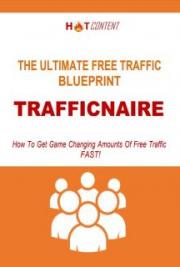toolS
naming
meSSaging
iDentity
WeBSiteS
literature
DeSign & CoPy
VenDorS
reCruiting
Crm
ClV
roi
CuStomer aCquiSition
Planning
SaleS ProCeSS
CamPaign Planning
marKeting Plan
traditional
Digital
management
traDitional meDia
Seo & Sem
CuStomer retention
DireCt mail
online aDVertiSing
BuSineSS DeVeloPment
PuBliCity
SoCial meDia
SaleS management
telemarKeting
EMAIL MARK
A
ETING
eVentS
Email marketing has been a staple for consumer marketers since the mid-1990s. A few years later, B2B marketers
discovered its value, and email campaigns have become an important tool for businesses in all stages and industries.
Email marketing enables you to cost-effectively communicate with your market in a way that’s immediate and relevant.
With email, you can:
› Nurture leads
› Build brand awareness
› Obtain prospects
› Build customer loyalty
› Generate sales
You can usually launch a campaign and measure your results quickly, making email a great option for time-sensitive
programs. It’s easy and inexpensive to test different aspects of your campaign on a segment of your list, so you can
hone your creative and your offer to generate the best possible results.
84
Copyright Moderandi Inc. 2013
Share
this ebook:

Here are three sample email campaigns:
Generate New Leads
Direct Sales
Build Brand Awareness
Rent a list and send a short,
Create a special offer for your
Use email to keep in touch with
compelling message to generate
current prospects and customers;
prospects and customers. Deliver
interest in your product. Drive
compel them to click to your
timely, valuable information that
prospects to a special page on your
website to learn and buy.
makes them want to read your
website to download a white paper,
messages. Add news about your
a demo or other offer. Capture basic
company, special offers, etc., but
information and follow up via phone
focus on content and information
several days later.
rather than pure sales.
Email is more editorial than advertising, and it’s powerful because it can support and even drive a sales process. Yet,
like any medium, it has its challenges. B2C email marketing to cold lists has a terrible response rate. Social media is
reducing people’s reliance on email. Businesspeople often still receive hundreds of emails (or more) each day, so B2B
marketers need to get past spam filters and give people a reason to read. You’ll also need a strong offer, valuable
editorial content, appropriate design and a good fulfillment and measurement process.
While you can reach a wide audience with email, that doesn’t mean you should. It’s most effective when you really
target so you can speak to specific needs. Think of it as a one-to-one communication—personalized, relevant and
timely—not a blast.
If you’ve used email in the past, do you see your company in one of these scenarios?
Best Case
Neutral Case
Worst Case
You have a strong email program
You perform some email marketing
You use email as a quick-fix—when
with very specific goals.
and are generally satisfied with the
you’re low on leads, you do a blast
results. You send announcements
message; if you haven’t reached out
You use technology to deliver
about products and offers; you
to customers in a while, you create
your messages effectively. Your
occasionally use email to generate
a quick newsletter.
campaigns offer strong content
leads or keep your name in front of
and messages; you create custom
existing ones.
You generally don’t target your
landing pages to convert clicks to
prospects—you blast one message
prospects.
You occasionally test a campaign
to your entire list. You don’t test
before launch, but it isn’t a major
your campaigns, and you don’t
You continually test your designs,
priority. You know that your
know how many of your messages
copy, list and offer to improve your
campaigns could be stronger, but
are actually delivered.
response. As a result, you usually
you haven’t had time to improve
meet your ROI and business goals.
them.
How Email Marketing Aligns with Strategy
Campaigns using email should support your positioning and brand strategy, contributing to the experience that you
wish to deliver and the mindshare that you wish to own. This includes your email design, copy, delivery frequency,
CAN-SPAM compliance and opt-out procedure.
DOWNlOAD hundreds of plans for these
Share
85
marketing activities at www.MarketingMO.com.
this ebook:
Key Concepts & Steps
Use email to meet the goals you set in your annual marketing plan; you can also use them as part of a broader marketing campaign. You’ll also need to make sure your website is strong enough to support your campaign.
Develop your campaign around specific goals
Take the time to strategize and plan your campaign:
› Develop a tangible objective—for example, to generate a specific number of leads, demo requests, meetings, or
purchases.
› Profile and target your audience.
› Create a good offer and compelling call-to-action, and present it early in your message—readers skim.
› Plan a series of emails to create an ongoing campaign—it takes multiple touches to generate response.
› Don’t forget fulfillment—if your prospects expect a phone call or email, deliver it quickly or you could lose their interest.
Invest in good content
You probably don’t want all of your emails to focus on product or service promotions. Readers will tire of them. Instead,
offer information that’s relevant to your recipients. It’s an investment to develop that content, but it’s the content that
gets people to open your messages and continue to read them over time.
Choose the right technology
If you’ve never launched an email campaign, you’ll probably need to use an email service provider (ESP), typically a
web-based service. Choose a reputable ESP to help you stay compliant with spam legislation and get your messages
to your prospects’ inboxes—a major challenge in email marketing. A good ESP can raise your delivery rate, manage
your opt-in and opt-out process, keep your email list clean and provide reports that can help you improve your results.
Be respectful and fol ow industry practices
Make sure that you’re following accepted industry practices—you’ll improve your probability of success.
› Mail to your house list regularly—even corporate emails change rapidly. The more time between campaigns, the
higher your rate of bad addresses—and those “bounces” could trigger spam alerts.
› Make sure your recipients can easily opt-out of future communications.
› If you’re buying or renting a list, make sure it’s an “opt-in” list.
Continual y test, refine and improve
It’s always wise to test before launching a campaign. If you’re working with a new ESP or list, evaluate your delivery
and response rate before you roll out. Keep testing and improving your subject lines, headlines and copy, design, offer,
landing pages, even the delivery timing. You’ll improve all your campaigns in the process.
Next Steps
As your use of email increases, keep learning about open rates, subject lines, list fatigue, and other ways to improve
your campaigns.
86
Copyright Moderandi Inc. 2013
Share
this ebook:








Customer Retention
Strategy
ComPetitiVe PoSitioning
BranD Strategy
PriCing
DiStriBution CHannelS
toolS
naming
meSSaging
iDentity
WeBSiteS
literature
DeSign & CoPy
VenDorS
reCruiting
Crm
ClV
roi
CuStomer aCquiSition
Planning
SaleS ProCeSS
CamPaign Planning
marKeting Plan
traditional
Digital
management
traDitional meDia
Seo & Sem
CUSTOMER RETENTION
DireCt mail
online aDVertiSing
BuSineSS DeVeloPment
PuBliCity
SoCial meDia
SaleS management
telemarKeting
email marKeting
eVentS
How much have you invested in your marketing programs over the last few years? Thousands? Tens of thousands?
Millions? Tens of millions?
Customer retention is about keeping the customers that you already spent money to acquire. And if you’re in an industry
where your customers make multiple purchases over the years, your entire team should be very focused on retaining
those customers by:
› Delivering service that’s consistent with your brand
› Cross-selling, up-selling and asking for referrals from existing customers
› Developing programs to increase customer loyalty and decrease turnover
› Knowing the lifetime value for different segments and using that data to improve your marketing
› Prioritizing retention as a major focus in your annual marketing plan
Studies show that it costs ten times more to generate a new customer than to maintain an existing one. If you have a
small number of customers, losing a few could cripple your company. Even if you have a large number of customers,
a small increase in your retention rate should dramatically increase your profits.
In his book The loyalty Effect, Fred Reichheld writes that “a 5% improvement in customer retention rates will yield
between a 25% to 100% increase in profits across a wide range of industries.”
DOWNlOAD hundreds of plans for these
Share
87
marketing activities at www.MarketingMO.com.
this ebook:
With strong retention marketing, it’s much easier to grow your revenue and profitability. Do you see your company in
any of these scenarios?
Best Case
Neutral Case
Worst Case
Your company is focused on
You know how important it is
You don’t formally market to your
customer retention and it has paid
to retain customers. The reps
current customers. You know that
off. Renewals are high; you put a lot
who service existing customers
your service could be better, but you
of effort into campaigns and service
are good, but you’ve lost some
haven’t had the time to develop an
for existing customers. Incentives
customers that you shouldn’t have.
improvement plan. You definitely
encourage sales and support reps
You’ve sent out some surveys
have more turnover than you’d like.
to keep customers happy, and you
but haven’t done much with the
use financial modeling and surveys
data from them. And you struggle
As a result, you’re continually
to identify problems and focus on
with the commission on sales to
investing to generate new customers.
vulnerable customers.
existing customers—some people
Your revenue and profit margins are
argue that you shouldn’t pay at all
much lower than they could be, and
Your revenue has grown
because they’re house accounts.
the churning takes its toll on your
substantially each year because
organization.
you’re adding new customers
As a result, you have to replace
without losing current ones.
numerous current customers
each year.
How Customer Retention Aligns with Strategy
Customer service, retention activities and campaigns to existing customers should support your positioning and brand
strategy, contributing to the experience that you wish to deliver and the mindshare that you wish to own.
You can work on your customer retention strategy at any time, and marketing campaigns to them may be an important
part of your strategy. You may also decide to increase your focus on retention when you’re writing your annual marketing plan. But if you’re losing customers, don’t hesitate to focus your energy on retention right now.
Key Concepts & Steps
Determine your retention strategy
Your positioning and brand strategy should drive your retention plan. For example, if your method for delivering value
is customer intimacy, your customers are expecting great customer service. If they’re buying on price, you’ll usually
focus more on automating service to minimize costs.
Build your team
In some B2B industries, the original sales rep is the best person to manage an existing client—for example, the account
may require ongoing selling. In other cases, it’s better to transition the customer to an account rep who focuses on
day-to-day management.
Once you’ve decided how to structure the team, determine how many people that you’ll need and start recruiting.
Pay commission for renewals and growing the business
Your current customers are your most valuable asset—if your sales reps don’t earn commission on renewals, they’ll
have more incentive to spend their time chasing new business instead.
88
Copyright Moderandi Inc. 2013
Share
this ebook:

Market to existing customers
Put as much effort into your current customer campaigns as you put into the rest of your marketing programs. Know
your audience, grab their attention, focus on the offer, measure your results. Use campaigns to:
› Nurture your customer relationships
› Encourage customers to buy again
› Expand your relationships by cross-selling, up-selling and asking for referrals
› Identify customers who are at risk of defecting
› Continually deliver on your brand promise
Measure purchase intent and loyalty, not “satisfaction”
Customer feedback can help you improve your products and enhance your relationship with your customers. However,
it’s not effective to measure “customer satisfaction” because it’s so vague. “Satisfied” doesn’t mean they intend to
keep buying. Instead, focus on behavior: Ask whether they intend to buy again and why or why not. Ask what three
things you can improve upon and whether they’ll provide referrals. These questions provide more actionable insight
than “satisfaction.”
Use data to evaluate large groups of customers
If you don’t have personal relationships with your customers, use data to identify customers who haven’t purchased
in the normal timeframe. They may be at risk of defecting and you can launch retention campaigns and encourage
them to stay.
Next Steps
Refine and improve your customer retention strategy and execution—it may deliver the highest ROI of all of your marketing programs.
Service and manage your customer base, evaluate the effectiveness of the tools used, and focus on continually improving your tactical execution.
DOWNlOAD hundreds of plans for these
Share
89
marketing activities at www.MarketingMO.com.
this ebook:







Business Development
Strategy
ComPetitiVe PoSitioning
BranD Strategy
PriCing
DiStriBution CHannelS
toolS
naming
meSSaging
iDentity
WeBSiteS
literature
DeSign & CoPy
VenDorS
reCruiting
Crm
ClV
roi
CuStomer aCquiSition
Planning
SaleS ProCeSS
CamPaign Planning
marKeting Plan
traditional
Digital
management
traDitional meDia
Seo & Sem
CuStomer retention
DireCt mail
online aDVertiSing
BUSINESS DEVELOPMENT
PuBliCity
SoCial meDia
SaleS management
telemarKeting
email marKeting
eVentS
Organizations apply the term “business development” (a.k.a. “biz dev”) to a variety of activities.
In this section, “business development” refers to high-level partnerships that generate revenue, create better products
and/or increase efficiency. These partnerships can help you:
› Access new markets
› Increase sales to existing markets
› Improve your access to technology
› Boost your productivity
› Gain capital (human or financial)
In a true partnership, companies collaborate to achieve a common goal. It’s more than a short-term promotion, such
as a special offer or marketing to each other’s customers. Instead, it’s an agreement to do business together while
sharing responsibilities, resources, risks and rewards.
90
Copyright Moderandi Inc. 2013
Share
this ebook:

Here are three examples of true partnerships:
To Create New Products
To Increase Efficiency
To Create New Services
A computer manufacturer enters a
A software company has a fantastic
A design firm partners with a direct
partnership with a fashion designer
new product but is inundated with
mail fulfillment firm to offer each
to create a limited-edition laptop
customer service calls that they
other’s services to their respective
and matching case.
can’t handle. They approach a
clients.
telemarketing firm that specializes in
They create a team of employees
the software industry.
Each company promotes the
from both companies to design and
partnership to new prospects and
market the product. The computer
Instead of just hiring the
existing customers. They offer
manufacturer produces the
telemarketing firm, they create a
the service with a single point of
computers, the designer creates the
partnership. The telemarketing
contact—if a design client needs
bag, and they share revenue fairly
firm provides service for a greatly
mail services, the design firm
based on their contributions and
reduced fee, then receives a
manages the implementation rather
cost structure.
su

























